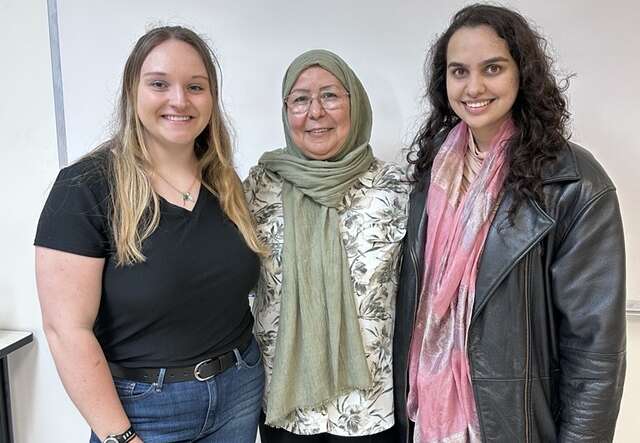
This spring, Vera Liang, our Adult Education Supervisor at IRC in New Jersey interviewed a high-beginner IRC English student. Her son is also enrolled in our English course.
We invite you to read Halima's story which is a part of our case study on the impact of adult education at IRC New Jersey & IRC New York.
- How are you? How is life in the US for you?
I am fine. I am very, very fine. Life here is good. I like the USA. People here are good people, and I don’t feel people treat me differently here. I learned in the US that the rights of women are much better here. People here respect women, and they get respect from men.
How is your class going?
I am satisfied with the class, teachers here are very nice. I started the class with teacher Dure, and it was my first time learning English. I started high school in Afghanistan, but I got married and I wasn't able to finish school. I had to take care of my children and have been busy with family ever since then. I really enjoy being able to learn in the USA."
I was interested in starting university, but I couldn’t go to university due to my family duties (raising children, etc.). Due to what was going on, we moved to Uzbekistan and lived there. That's also why I didn't have a chance to continue my education because I spent most of time taking care of the family and starting my new life in Uzbekistan.
My son has autism and was officially diagnosed when we were in Uzbekistan. My son exhibits behavioral issues due to autism, and we had to go to many doctors' appointments, so I didn't have much time to continue my education, but now since he is older, I am able to take some time for my English classes.
- What has been your favorite topic?
Grammar and vocabulary. I write down new words in my notebook, and after cooking dinner for my family, I complete my homework. I now have over 380 vocabulary words in my notebook. I also enjoy practicing English conversation.
My son is taking the IRC’s online English class. I noticed that when my son goes out in public now, he can gradually communicate with others and solve problems in English with more ease than before.
- What topic has been easy and/or difficult for you and why?
The only thing that I couldn’t understand well was listening, but the grammar and vocabulary parts are not as difficult for me. I do not find it too difficult when the teacher speaks faster in English since she also uses her body language, too.
Why did you want to learn English?
I was dreaming about learning English while I was in Afghanistan and Uzbekistan. I want to be educated in the U.S. and be able to communicate with others. I want to be a medical doctor. Because of my experience taking care of my son, I want to help other people who are facing the same diagnosis as he is.
- Is this your first time learning English?
Yes- first time learning English.
- How does it feel to learn with your classmates?
I feel very happy to be with the classmates. I don’t feel difficult that my classmates all speak Haitian Creole and I am the only who speaks Dari. When the teacher is teaching, I don’t feel that anyone should speak Dari in the class because I can learn more if everyone speaks English to me in the class.
What is your goal in learning English?
I want to be a doctor and help people who have a similar diagnosis as my son. It was also my father’s wish that I become a medical doctor.
What other languages do you know? Have you felt nervous practicing English outside of class?
Dari, Pashto, Uzbeki, a little bit Russian. No, I feel relaxed when speaking English outside. One time I went to the dentist's office. My son had to wait outside during my procedure. I was speaking English directly with the dentist. I was happy that I was able communicate with my dentist by myself. I want to be independent—I don't want to be dependent on others all the time.
- What has learning English taught you about American culture/society?
I noticed that people in Afghanistan are more serious, whereas people here are more carefree. They laugh more.
- What advice would you give to someone who is learning a new language?
It’s important to learn English so I can communicate with others, like going to the doctor’s office and being able to speak with the doctors.
I continue learning English after the English class ends. I write down new vocabulary every day and review it. I watch English videos and if I hear any new words, I write them down and ask my husband the meaning of the words. I then write new sentences using the words I just learned to practice them.
I am not learning English to pass an exam and get a high score. My goal is to be able to communicate with others in English and be independent in life.